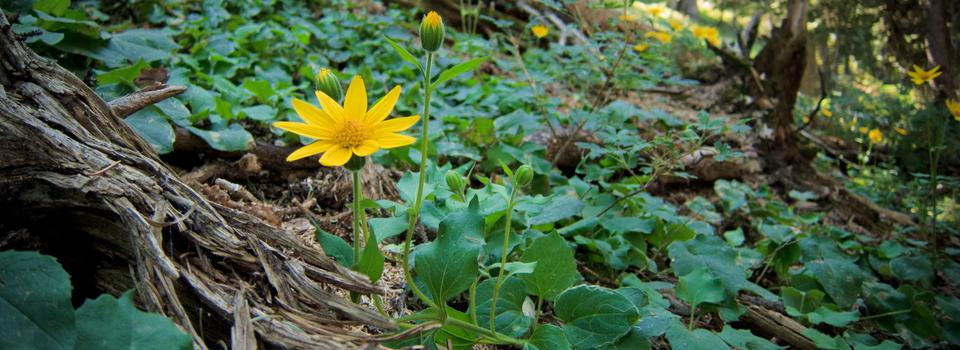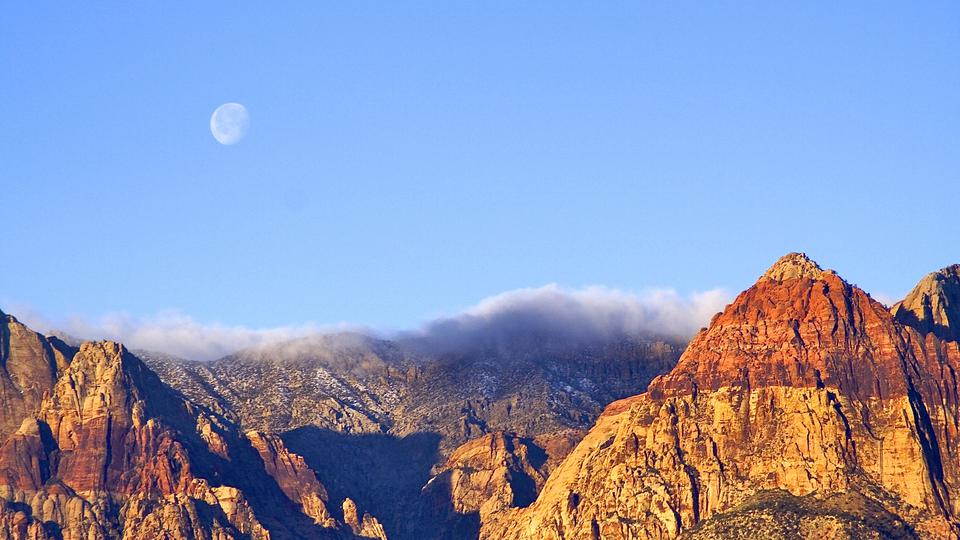For more information, see the Church's Environmental Stewardship and Conservation topic page.
Our Heavenly Father created the earth as a home for His children to learn and progress—He provided crisp air, rolling waters, and fertile fields; He wrought panoramas of breathtaking peaks and verdant valleys; He painted striking scenes that evoke awe and humility.
His creation, however, is more than a pristine picture; it’s an abundant world full of life-sustaining soil, seasons, and resources that provide for diverse plant and animal life. Recalling his own bucolic upbringing, a former president of The Church of Jesus Christ of Latter-day Saints, Spencer W. Kimball, declared: “This is a marvelous earth on which we find ourselves.”[i] In God’s grand plan, the earth serves as a sacred space for mortal life; it’s a matchless gift from a loving Heavenly Father. And yet, too often human action toward the earth mirrors that of a profligate rather than a thankful beneficiary.
Latter-day Saint teachings are unequivocal—we all have a responsibility to care for God’s majestic creation and to use its resources “with judgment, not to excess, neither by extortion” (D&C 59:20).

The earth is vulnerable, and we are accountable to God for how we treat and use it. Excessive consumption sullies God’s seas; wanton waste blackens His air. The creation groans under the weight of recklessness and indulgence that neglects both the poor earth and the earth’s poor. God expects us to care for His glorious creations, including all His children.
“As beneficiaries of the divine Creation, what shall we do?” asks President Russell M. Nelson, the president of The Church of Jesus Christ of Latter-day Saints. “We should care for the earth, be wise stewards over it, and preserve it for future generations. And we are to love and care for one another.”[ii]
Ultimately, the earth is God’s property. Basic moral obligations compel us to act as good stewards and to not damage or harm what belongs to God; we should treat His creation with the heightened care it deserves, using the earth’s abundance in harmony with divine dictates and prudent principles of preservation.[iii]
President Kimball said: “The Lord gave us a choice world and expects righteousness and obedience to his commandments in return. But when I review the performance of this people in comparison with what is expected, I am appalled and frightened.”
He continued: “I have traveled much in various assignments over the years, and when I pass through the lovely countryside or fly over the vast and beautiful expanses of our globe, I compare these beauties with many of the dark and miserable practices of men, and I have the feeling that the good earth can hardly bear our presence upon it.”[iv] President Kimball taught that “pollution of mind, body, and our surroundings” is not pleasing in God’s sight.
The environment. Nature. Conservation. These and other words carry political connotations. But God’s creation is bigger than politics. Church teachings on this subject do not detail specific behavioral mandates, nor do such teachings proscribe which policies, parties, or causes one should support. We commend those who seek to care for the earth in harmony with gospel principles. Diverse political platforms contain reasonable approaches to caring for the earth and God’s creations. The Church recognizes that appropriate stewardship may vary according to individual circumstances.

In answering a question about how he governed the Church and its membership, the Prophet Joseph Smith famously said, “I teach them correct principles, and they govern themselves.”[v] By and large, the Church follows this approach. In a global faith, teachings on earth stewardship focus on principles rather than specific practices that differ from place to place and person to person. The Church trusts its members to balance competing considerations and to act in harmony with sound teachings as they seek to live the gospel of Jesus Christ.
Church members and all of God’s children can benefit from contemplating the words of modern prophets and the scriptural teachings regarding the earth, its purpose, and how God expects us to care for it. In a recent Gospel Topics essay published by the Church on this subject, members were urged to “adopt lifestyles and personal habits that respect the Creation.” The Church has also encouraged members, where practicable, to “fix up and keep clean the places where you live, work, recreate, and worship. Make your own living space more beautiful and inspirational.”[vi] The Book of Mormon states that “the earth, and all things that are upon the face of it … witness that there is a Supreme Creator” (Alma 30:44). Defacing or purposefully destroying this witness of God’s love for His children displeases Him.
We are inextricably connected to this earth. Our carelessness curses it; our righteousness blesses it. Its health affects our health. Our destinies are tethered; we share a common Creator.
We should live for future generations, not just for our own. This means learning about the earth and having a responsible relationship with it; we can become informed, engaged, and attuned to sound science. This is indeed a “marvelous earth,” and it deserves our utmost care. Ultimately, our posture toward the creation is a reflection of our posture toward our Creator.[vii]
[i] Spencer W. Kimball, “The False Gods We Worship,” Ensign, June 1976.
[ii] Russell M. Nelson, “The Creation,” Apr. 2000 general conference.
[iii] See Marcus B. Nash, “Righteous Dominion and Compassion for the Earth” (address given at the 18th Annual Stegner Center Symposium, Apr. 12, 2013), MormonNewsroom.org.
[iv] Spencer W. Kimball, “The False Gods We Worship.”
[v] Teachings of Presidents of the Church: Joseph Smith (2007), 284.
[vi] “Environmental Stewardship and Conservation,” Gospel Topics, topics.lds.org.
[vii] In T.S. Eliot’s The Idea of a Christian Society, he writes, “a wrong attitude towards nature implies, somewhere, a wrong attitude towards God.”